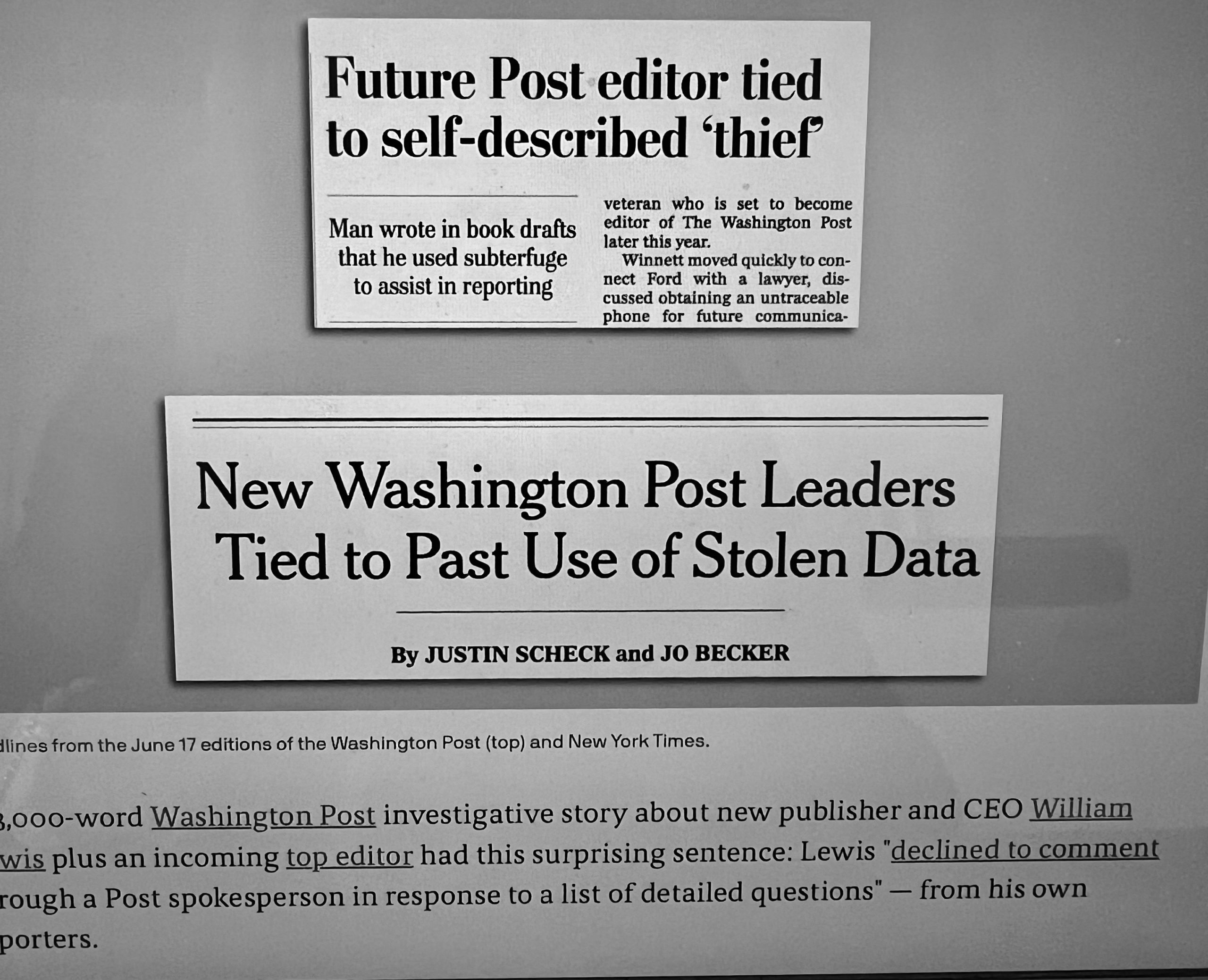In case you haven’t heard, the Washington Post is going through an identity crisis, and what is happening there deserves our attention.
A quick summary: The Post hired a British man named William Lewis, who has spent his career working in and around journalism in the United Kingdom, as their publisher and chief executive officer. One assignment on his resume was to help Rupert Murdoch’s paper deal with a phone hacking scandal that is now part of a lawsuit. Lewis not only dealt with the matter, he also “dealt with it,” as in tried to sanitize results; according to the Wall Street Journal, “former executives “carried out an effort to conceal evidence related to the hacking, including William Lewis, now the publisher and CEO of The Washington Post.”
Lewis recently oversaw the newsroom’s reorganization, including the departure of a woman editor to make room for two of his UK newspaper colleagues to join the Post as news executives. Several news organizations have reported that the editor left because Lewis pressured her to suppress Post reporters from covering development in the phone-hacking case.
Having an executive of a major US newspaper involved in a lawsuit involving phone hacking public officials is not normal, and neither are his instincts to hide his role. The people running our local and national newspapers should be held to a high standard, as they help form our views.
My dad, Bob Giles, who was on the board of Record-Eagle, would have had a thing or two to say about all of this. My dad, a newspaper publisher and lifelong journalist who wrote a book called “When Truth Mattered: The Kent State Shootings 50 Years Later”, died last summer. But he left us with some clear advice regarding the news and how to hold ourselves and others who are in positions of trust accountable. At the end of his book, he shared eight lessons that he hoped would serve as a toolbox for understanding today’s news events. Lesson Two definitely helps us frame our thoughts on this one.
Lesson Number Two is “WELCOME THE SCRUTINY OF THOSE WHO ARE POWERFUL.
Reporting that identifies questionable or irresponsible behavior should be a welcome indication that a news organization is carrying out its obligation to hold the powerful accountable.” This lesson’s inference is that Lewis’s appropriate ethical response should be to cover the story. Follow the facts. Not, let’s squash something that looks at my actions.
Holding powerful people accountable is one of those rare freedoms we have in the United States. We can achieve this power by speaking about issues we think are unethical, e.g., Lewis’ behavior. We can cancel subscriptions to publications that violate our trust and turn the channel when TV or radio journalists violate our trust. And we can vote to ensure we always have the ability to keep people in check, even those who are powerful.
Some of this is common sense, but some may need a reminder. We can’t normalize the behavior of people evading the consequences of their actions because they now look bad under scrutiny. These are destructive and dangerous impulses and should be checked and were, read the headlines on this story. “Washington Post CEO Turns to Damage Control After Turbulent Week,” “Washington Post publisher Will Lewis reportedly tried to kill story about his involvement in UK hacking scandal,” “Washington Post’ CEO tried to kill a story about himself,” and “Washington Post Shake-Up Brings Fresh Eyes to an Old Scandal.”
We should care a lot about who directs our news coverage, national or local, and remember that we can use our judgment to frame our responses about those people’s behavior, including you, Mr. Lewis.
If you would like to read more about my dad’s Eight guidelines you can: https://www.whentruthmattered.net/eight-truth-guidelines.



